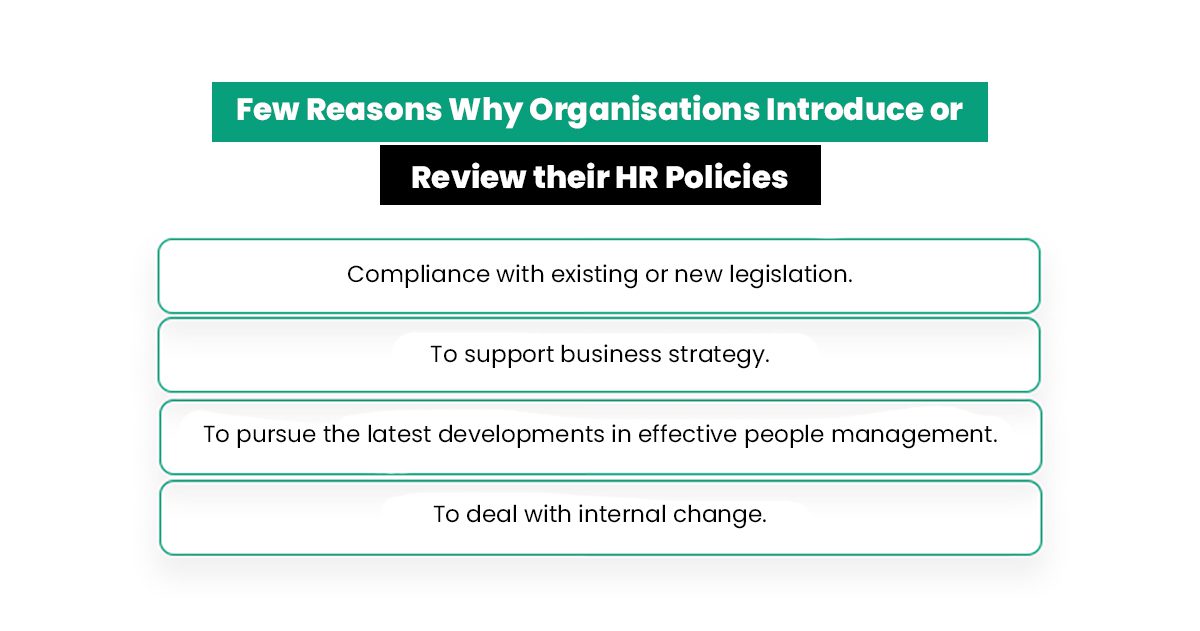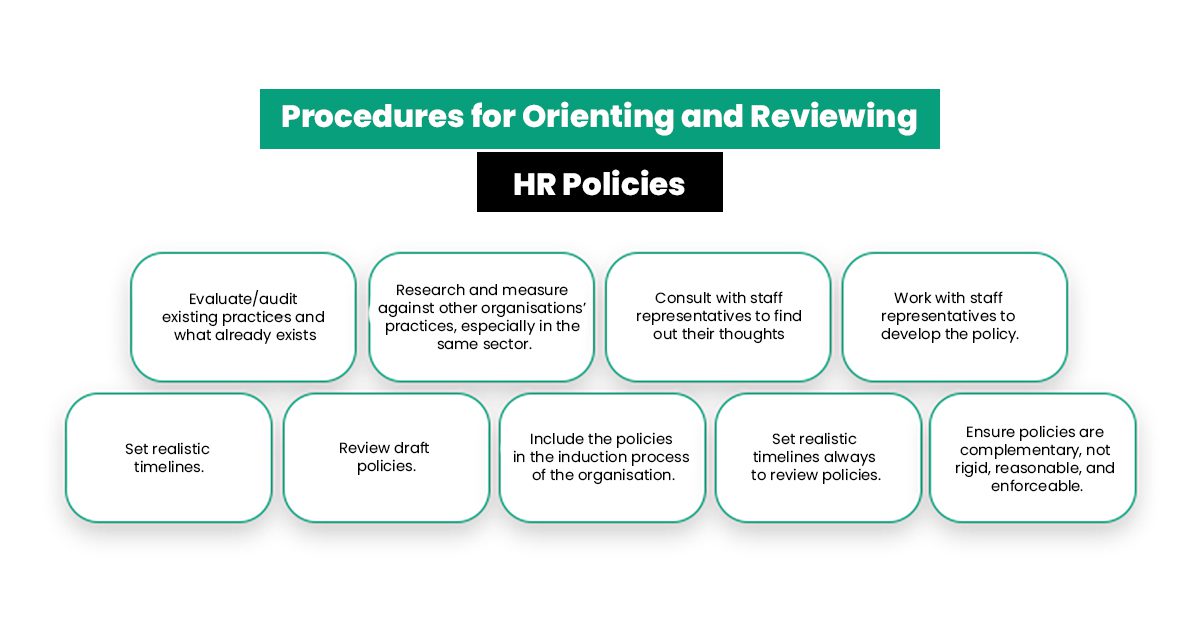In recent times, organisations have continuously experienced profound on the back of the COVID-19 crisis; even though businesses still try to understand these quick changes, the pandemic hasn’t afforded them that luxury. There have been tremendous and rapid changes in how work operates and how employees interact with their work. Businesses have all witnessed a fast shift to remote work and now hybrid work, the dynamic reallocation of resources, and the speed of digitisation and automation to meet changing individual and organisational needs.
As the globe progresses towards a post-pandemic era, a management approach based on old rules—a hierarchical culture, bureaucracy, and control—will no longer be effective. Taking its place should be a more flexible and responsive policy or a review of the previous organisation’s guidelines that better align with the business strategy and the new world of work.
What are HR Policies?
HR policies are written guidance on how an organisation should handle issues. These policies play a crucial role in supporting fairness and consistency across an organisation, using effective communication and implementation, particularly by managers, to ensure their effectiveness. Apart from policies showing guidance on individual and organisational responsibilities, it should also support the broader strategy by adopting a tailored approach that reflects the size and unique culture of the organisation.
HR policies play an essential role in sustaining trust, fairness, and inclusion cultures by outlining the employer and employee’s responsibilities in the employment relationship. These policies can support the mindsets and conducts needed for sustainable performance, creating mutual benefits for employees and the business.
HR policies also improve decision-making speed by ensuring that clear guidance is readily available to cover various issues. They can also help avoid involvement with employment tribunal claims by providing advice for managers that reflects regulations.
Writing and Reviewing HR Guidelines/Policies.
For easy understanding from every employee in your organisation, writing policies in plain language are advisable. When technical terms are inevitable, including a short dictionary is helpful. It’s also beneficial to have the publication date or the most recent review of the policy document.
It is essential not to guess that policies are always the correct ones. Some policies get evaluated at regular intervals, while some get reviewed in the event of legislative developments. For example, change in work practices during the COVID-19 pandemic meant creating new policies for many organisations.
Turning HR policy into an easy practice will require working across the business to ensure that employers and employees fully understand the policies and expectations. The communication format will depend solely on the business culture (Clan, Adhocracy, Hierarchy and Market) and the nature of the policies.
Line managers are instrumental in bringing HR policies to life; therefore, training and support are crucial to ensure that the managers clearly understand and implement the policies sensitively and fairly.
Induction/onboarding plays a crucial role in making sure new employees are aware of all the policies and procedures within an organisation. According to click boarding on employee onboarding, 69% of employees may stay with a company for three years if they experience great onboarding.
What HR Policies Should Organisations Have?
There’s no one-size-fits-all process to developing effective HR policies; While a detailed procedure will work well for some organisations, fewer policies will work better for others. Businesses should concentrate less on what’s worked well for other organisations and focus instead on deciding what will work to create sustainable and successful relationships between people and the organisation.
Relevant policies for any organisation during the employment life cycle are:
1. Before Employment
An organisation might have a different policy that places out its standards for selection and other vital procedures for new joiners, such as induction.
2. During Employment
· Reward
Policies address areas such as how jobs get graded and the rewards attached to performance, with provisions for some aspects of compensation packages, such as pensions/additional voluntary contributions and other benefits and allowances.
· Health and Employee Well-Being.
Policies here cover various topics, like prevention and management of work-related stress. MIT Sloan’s research on employee health showed that organisations that embraced the following (active listening, re-evaluating values, modelling wellness, and addressing health in reviews) were able to improve employee loyalty by 79%, helping retain top talent while saving them time, money, and resources needed for new hires.
· Employee Relations and General HR Issues.
Here we see disciplinary and grievance policies; examples include time-off, holidays, parental or caring duties (maternity or paternity leave), and other employee behaviours, including employee voice and harassment, and bullying.
· Learning and Development.
Issues that policies in this area might cover include development areas for employees (training), talent development, etc.
· Other Issues.
Other policies that businesses may want to include various areas connected to the broader business needs (for example, corporate responsibility or anti-bribery standards) or those associated with technology and new ways of working.
3. Ending Employment
There are numerous reasons why employment ends, from voluntary resignation to discharge, redundancy, or retirement – some or all of which might get covered by formal written policies.
Over the past 29 years, pcl. has navigated excellently in providing HR policy or strategy manuals development solutions that align and support the broader business strategy. We assist our clients with inclusive, fair, and engaging HR policy manuals that reflect the organisation’s size and its unique culture.
For more information on this, please send us an email: people@phillipsconsulting.net
Written by:

Ruth Pelemoh
Analyst


